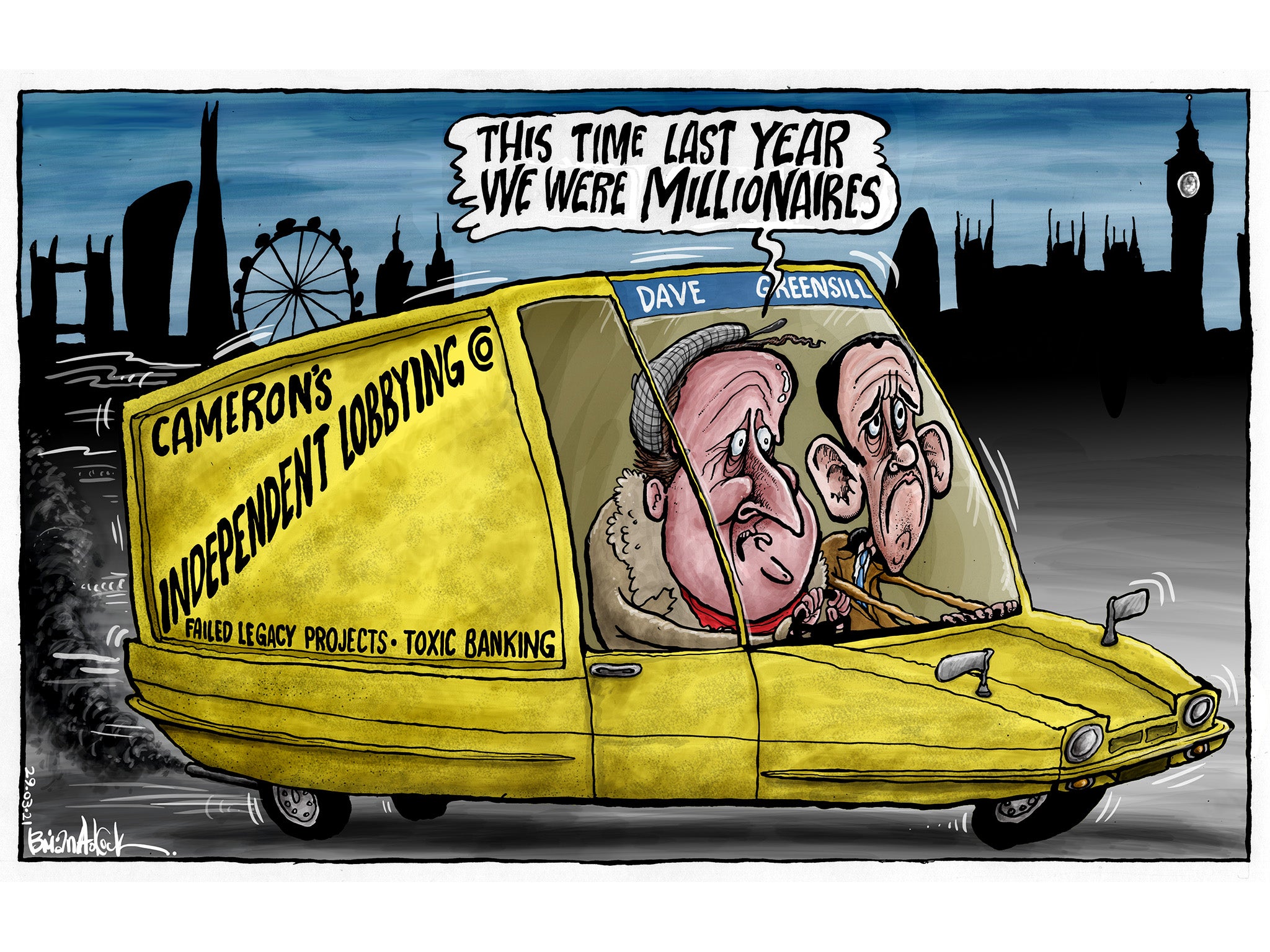“It is the next big scandal waiting to happen,” was how David Cameron described lobbying in 2010 when he was leader of the opposition. “It’s an issue that crosses party lines and has tainted our politics for too long, an issue that exposes the far-too-cosy relationship between politics, government, business and money.”
Mr Cameron has been proved right, although not in the way he would have wanted. Ironically, 11 years on, his actions as prime minister and lobbying activities since leaving office are under the spotlight, and an unflattering picture emerges.
As The Independent revealed on Sunday, questions are being asked about the value for money provided by his flagship project, National Citizen Service, which has received £1.3bn from the public purse since 2011 and soaks up 90 per cent of the government’s youth budget.
Its summer programmes for 16- and 17-year-olds have been described as little more than “a summer camp for mostly middle-class kids”. Labour is to table a parliamentary question on whether Mr Cameron continues to lobby for the project.
Mr Cameron is also in the headlines because it emerged that, in his role as an adviser to the troubled Greensill Capital, he repeatedly texted the chancellor, Rishi Sunak, on his private number to ask for help under one of the government’s coronavirus schemes to aid business, which was turned down, although the company did benefit from another of its programmes.
Now it has emerged that Lex Greensill, the firm’s founder, enjoyed privileged access to the government machine under Mr Cameron. As an unpaid adviser, he persuaded ministers to set up a loan scheme for NHS-linked pharmacies to ensure they were paid quickly. Citibank, Mr Greensill’s former company, ran the programme, which was later taken over by his own company, reportedly earning it hundreds of thousands of pounds a year.
This sorry saga is not only about the past; it has huge implications for Boris Johnson’s government. Greensill Capital has filed for administration. As a result, GFG Alliance, owned by the steel magnate Sanjeev Gupta, is on the brink of bankruptcy, putting 5,000 UK jobs at Liberty Steel at risk, with the government under pressure to save them.
Mr Cameron has some very serious questions to answer but seems reluctant to do so. It may be the case that his cabinet secretary, the late Jeremy Heywood, widely seen as the most gifted civil servant of his generation, opened doors for Mr Greensill; the two men previously worked together at Morgan Stanley. But the financier enjoyed a remarkable degree of access and influence on Mr Cameron’s watch, which later benefited Mr Greensill’s own company. As prime minister, he signed off the supply-chain finance scheme for pharmacies, even though civil servants expressed reservations.
Read more:
It is unclear why the government needed to use a private sector middleman rather than speed up payments to pharmacies directly. The present government insists Mr Greensill’s appointment was “approved in the normal manner”. Oliver Dowden, the culture secretary, who was Mr Cameron’s deputy chief of staff in Downing Street, said on Sunday he always found the former prime minister “a man of the utmost integrity”. He argued that Mr Cameron had been cleared of breaching lobbying rules – which he introduced in office.
But Mr Dowden was being disingenuous. Mr Cameron was “cleared” over not registering his recent contacts with ministers because he was employed directly by Greensill Finance and therefore not covered by the regulations, which apply only to lobbying firms. This exposes a gaping hole in the system brought in by Mr Cameron which Boris Johnson would be wise to plug to ensure some long-overdue transparency.
To ensure the Conservatives are above suspicion, Mr Johnson should order an independent inquiry into Mr Greensill’s activities during the Cameron administration, and whether the pharmacies scheme should have gone ahead. Mr Johnson should also ensure there is a thorough review of National Citizen Service to ensure it is providing value for money for taxpayers and helping the young people who most need it.

Join our commenting forum
Join thought-provoking conversations, follow other Independent readers and see their replies
4Comments